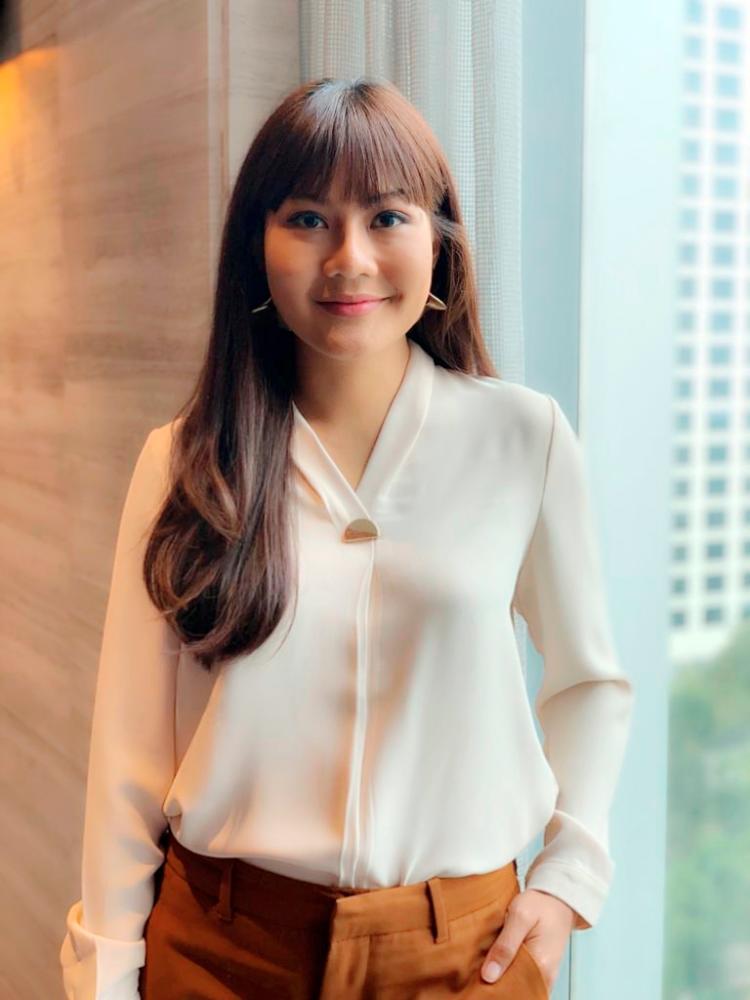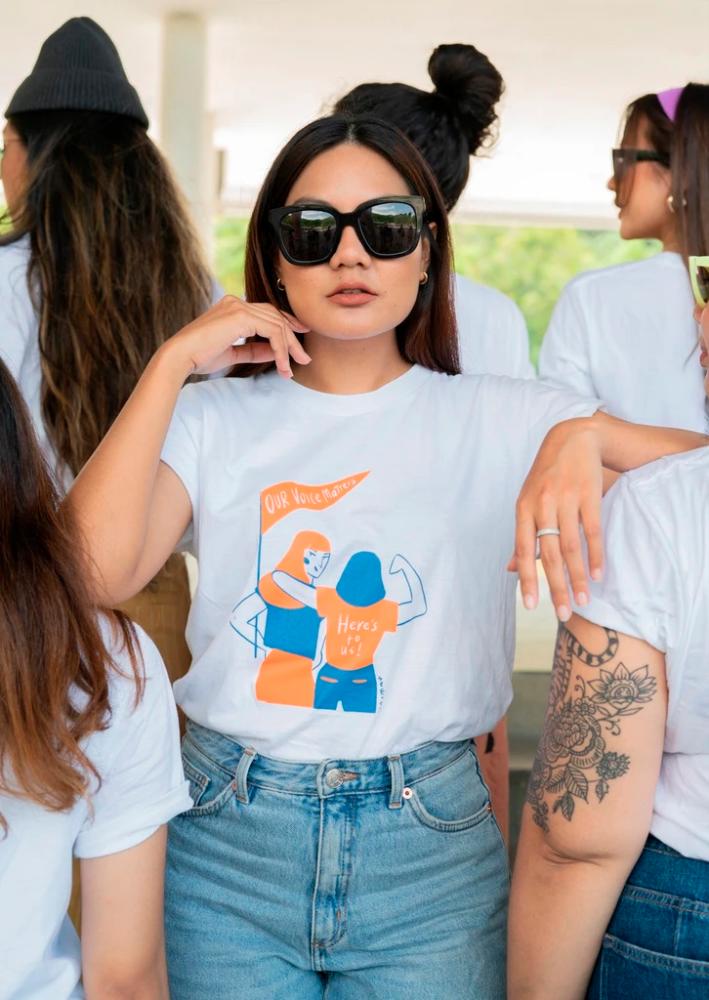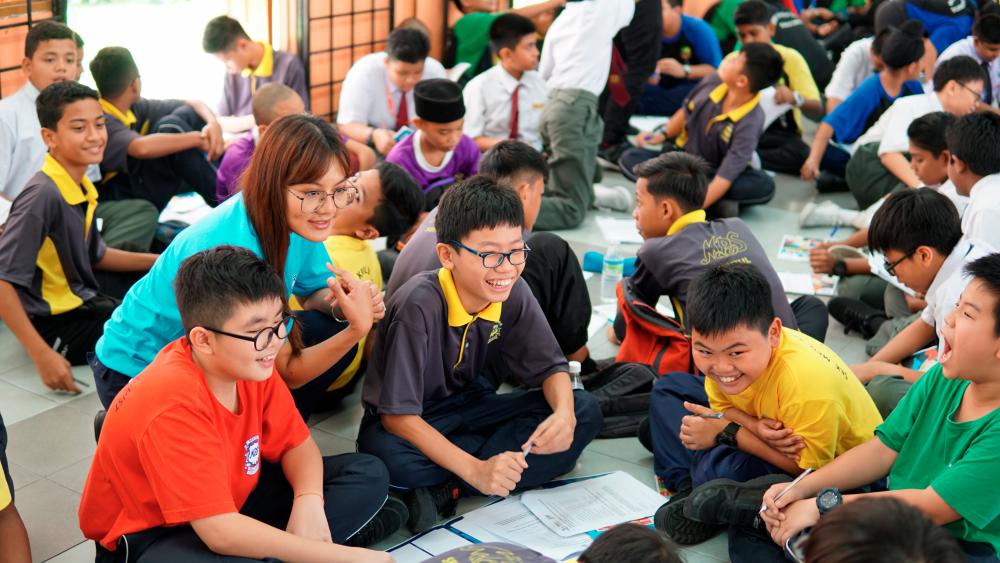Izza Izelan’s unequivocal love for women empowerment and social advocacy runs high through her work as the executive director of WOMEN:girls.
It is no surprise that after serving seven years as a broadcast journalist at Astro Awani, Izza has not lost her journalistic candour.
Her passion project podcast called Geng Gadis comes at a pertinent time. It is a platform to channel her investigative prowess in an attempt to make sense of womanhood and girlhood in modern times.
Izza shared in her pilot episode: “Instead of talking about other women, we talk about ourselves. Instead of looking out, let’s look within, and talk about the things we have in common.
“I want this platform to ultimately be inclusive towards men and boys as well, they’re so clueless about us, which is how I feel like sometimes.”
Despite its name, I noticed WOMEN:girls isn’t exclusively reserved for women and girls.
“Increasingly, we’ve been doing more programmes that involve men and boys including people who identified themselves as non-binary. Even though we’re called WOMEN:girls, we realised we can’t fight for female issues and exclude the men and boys. We need them as allies and they need to understand the issues as well.
“We may not have the capacity to properly handle legalities in comparison with other NGOs, hence, we focus more on what we do best, which are communication, content creation, being able to reach out to a wider audience by using more simplified, layman terms and jargons.
“Since we’re more relatable to a wider audience, we figured why don’t we include them in the conversation to create a bigger awareness, instead of only focusing on women.”
What was the process leading up to the inception of Geng Gadis?
“I must say that because I’ve been a journalist most of my life, I still have a part of me that wants to uncover things and talk about issues of the time.
“There’s a sense of intimacy with podcasts, it’s even more intimate than Instagram. When you decide to listen to a podcast, and in that moment, you’re listening to the host’s voice and the dialogue directing you to bridge conversations.
“The idea came to me when I was in the UK to further my studies in 2018, but I only officially executed it this May. Throughout the two years, I was collecting insights and input from the people I met.
“To my surprise, a lot of girls out there are in a situation whereby they don’t have a sister figure or companion to turn to and look up to, who essentially helps them navigate through life.
“That’s the reason why I did this podcast, not to play the role of a sister figure per se, but to be the sounding board.”

How can we make sure online activism has an offline impact?
“Social media is a double-edged sword, it can be used to spread awareness and to connect people, but on the flip side, it also limits people’s conversation and ability to think in-depth.
“For example, some of us can’t express ourselves enough with Twitter’s limitation of only 140 characters, and not everyone will go through the thread. It’s the same when you read a news headline and start making judgements without reading the content.
“Even on Instagram, you see a photo but you don’t read the caption. Because of that, online awareness is not translated well into the offline experience or impact.
“You can be an online activist spreading awareness and that’s great, but do your actions speak louder than words off-screen?
“That being said, I don’t think I have the solution to this, to be honest. Our identities online and offline are so blurred.
“Someone sitting at a cafe might not seem like an important figure, passing off as an Average Joe, but he could have 500,000 followers on Instagram.
“Yet social media is there for us to use its full potential, and it’s almost sinful if we don’t make use of the platform.”
Words like ‘gender equality’ and ‘gender equity’ are often used in gender and social movements. But how would you explain between the two?
“Honestly, they’re just words. Gender equality is allowing equal opportunities for all genders. By default, opportunities will fall on men because of the systemic value that has been ingrained in us since ages ago.
“Ideally, if you have the capability and ability to handle a task, the opportunity should be given to you regardless of gender stereotyping. It’s not about 50% men and 50% women.
“Gender equity is allowing space for more female voices to be heard, rather than power residing in male voices and authorities to make decisions for every gender.”
Can we use feminism as a movement or tool of women empowerment?
“Feminism is a movement, an ideology, a collective awareness to fight for something. Women empowerment, on the other hand, might not necessarily be a movement, you don’t need to be vocal about it.
“Women empowerment is basically to ignite the superpower within every woman. I’m not saying that I like women empowerment more than feminism, although I’m pro-feminism, it’s because of how easy it is to uplift someone’s spirit and confidence by just talking to them – your mother, sister or friend, you don’t need to protest on the streets. You can even empower yourself.
“I believe that everyone is already powerful in some ways, I never see anyone as less powerful or less than.”














